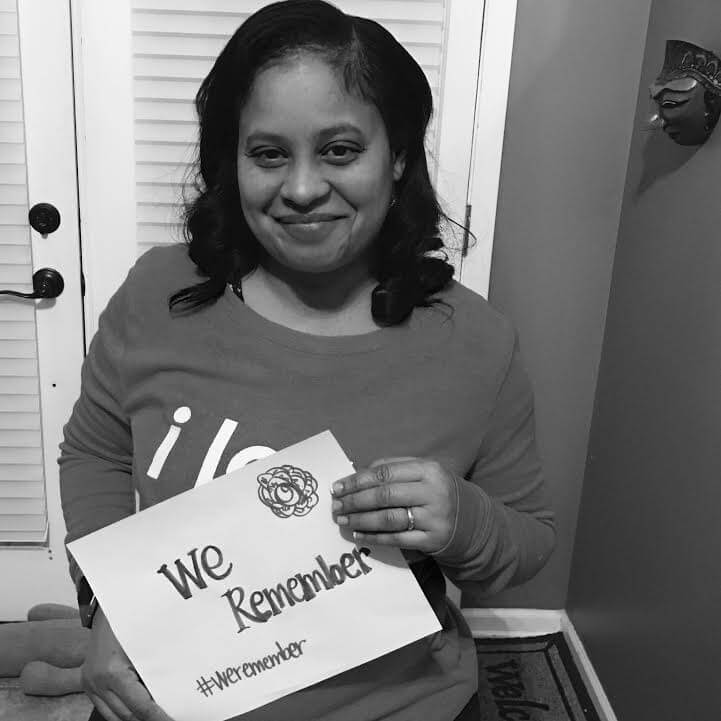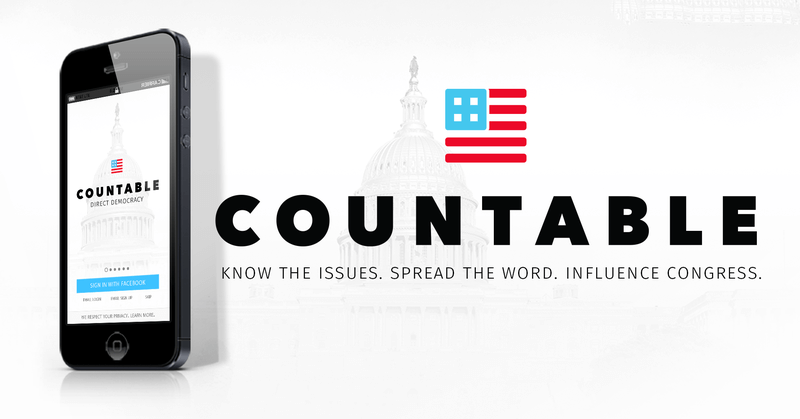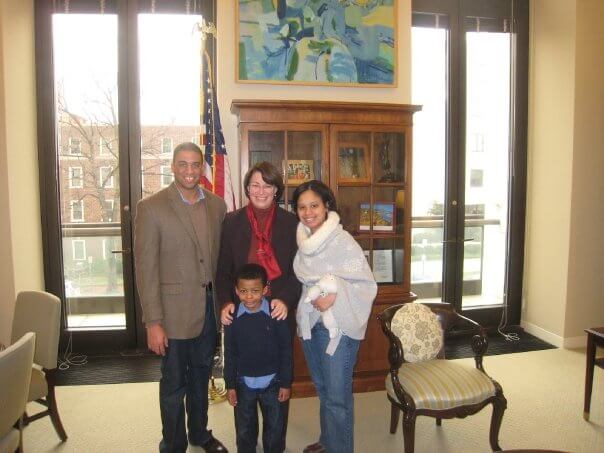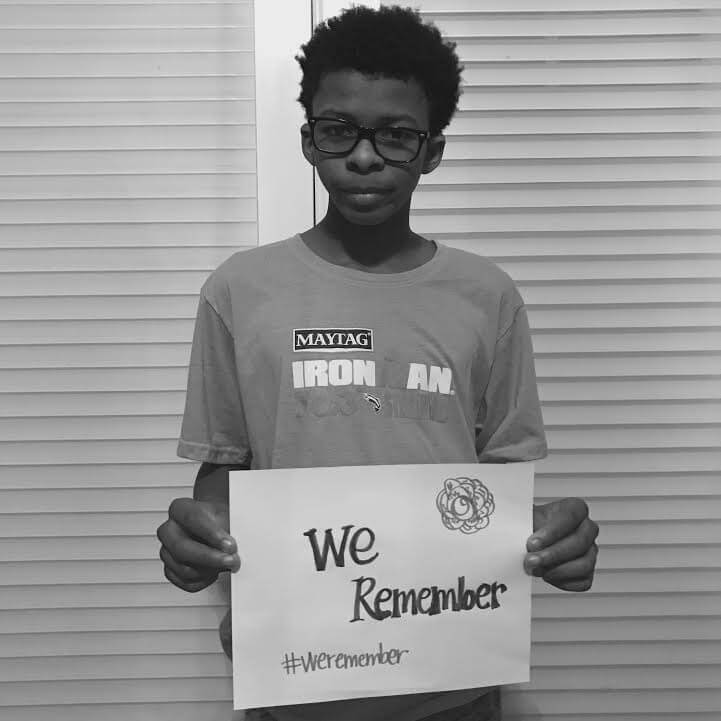
Image from Facebook.com
As the Trump administration takes over, we’ve started talking to our teenager more and more about politics and activism.
Political activism is everywhere.
It’s impossible to visit social media or turn on the television without seeing protests and uneasiness.
People are raising their voices and expressing their discontent. It’s something I cherish–whether or not I agree with the protesters.
Lately, the news cycle has become personal: the Jewish Community Center we once belonged to received bomb threats. My friend’s daughter was impacted and is old enough to understand what happened and why. She realized that some people were targeting her because of her religion.
This very personal scenario and many other things that have followed have prompted conversations in our home about political activism.

When children realize that bigotry can personally impact them, parents need to provide them with tools to help them respond.
Of course, this whole parenting thing has no manual, so we made up the plan while the situation continued to unfold.
What can you do?
First and foremost, we talked about what happened. I answered any questions my son had about the things he’s seeing in social media. I was careful to present facts (real facts not Alternative Facts) and follow up with questions of my own: What do you think about what you’re seeing? Why? What are you hearing about this in school? And on your own social feeds?

Next, we discussed ways to get involved. I explained that calling, writing or visiting our members of Congress are effective ways to meet our elected officials and inquire why they’re developing positions and opinions on issues.
It’s not always necessary to meet them in person.
We also explored sites like: whoismyrepresentative.com and apps like Countable which help you contact your Member easily.

My husband and I are both very passionate about government, and the active role citizens need to play.
We’ve been purposeful in taking our son to Congress.
When we visited Senator Amy Klobuchar’s office, we even took Teddy, Bobby’s favorite bear.

In addition to those ideas, my son had a few of his own: making signs for marches and making donations to organizations to fund good work. Both were great ideas, the latter generating a good discussion on the importance of researching non-profits before donating.
Lastly, we had a very candid discussion about openness. This is a point that we revisit often. And, it’s one I have to remind myself of every time I visit social media. As opinions form and tempers flare sometimes, openness can be challenging.
There’s also a harsh reality for a teenager to consider: as a teen, it can be difficult to have an opinion or belief that isn’t the same as a friend’s.
Ironically, I struggle with this as an adult.
It’s tempting to unfriend or turn your back on someone when you realize they’re fun to be around but don’t share your values or beliefs. Still, it’s important to surround yourself with people who have varying opinions. Every time you listen to someone else, you learn something else.
We’ve worked hard to encourage our son to remain open to the ideas and opinions of others. To help him grow, we’re encouraging him to ask questions when he doesn’t agree with someone else. It’s important that he seeks to understand their position. He understands that while he may not agree, having a conversation puts him one step closer to understanding someone else’s perspective.
With these strategies in mind, we thought about our Jewish friends in Minneapolis and how we could show them our support. We did some Googling, and learned about the World Jewish Congress and its “We Remember” Campaign.
The World Jewish Congress is the international organization that represents Jewish communities and organizations in 100 countries around the world. It advocates towards governments, parliaments, international organizations and other faiths.
Consequently, the WJC had just launched its social media campaign to raise awareness about the Holocaust. They asked people to use their social media channels to share photos on social media using the hashtag #WeRemember to acknowledge International Holocaust Remembrance Day.

By participating in the #WeRemember campaign we were able to show our friends that we loved them and were sorry for what happened.
While our action wasn’t large, it was just that: action.
And for me, it provided an opportunity for me to demonstrate that it’s important to get involved and raise your voice.
Political activism isn’t just voting, marching or lobbying. Sometimes it’s simply saying something, doing something, or joining forces with someone else to let them know they’re not alone, and that you can and will work to make a difference on their behalf using your.gif"signature" align="center">
Leave a Reply